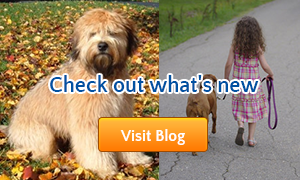The Giant Schnauzer, also referred to as a Riesenschnauzer, is a German breed that was developed to be a cattle dog. It is suspected that this breed was created by crossing rough-coated shepherd, Bouvier des Flandres, smooth-coated drover dogs, and Great Danes. Today this breed is used as a guard dog, as a watch dog and as a family dog.
impressive breed stands between 23.5 and 27.5 inches tall and weighs between 70 and 77 pounds. Their coat is short and wiry and it comes in solid black or salt and pepper variations. This is a very loyal and protective breed that can fit into just about any type of family as long as they are socialized properly. To keep the Giant Schnauzer happy and healthy you will need to provide it with plenty of exercise and mental stimulation. Giant Schnauzers are actually not gigantic dogs as suggested by their name, but simply a larger and more powerful version of the Standard Schnauzer.
 They will only reach the heights of 28 inches for males and 26 inches for females. Giant Schnauzers that go beyond 80 pounds are considered overweight.
They will only reach the heights of 28 inches for males and 26 inches for females. Giant Schnauzers that go beyond 80 pounds are considered overweight.
Origin of the Giant Schnauzer
The breed was developed in the Wurttemberg and Bavarian sections of Germany. These places were agricultural areas. Dogs like the Giant Schnauzers are in high demand as farm workers that help in variety of tasks. They were used as livestock controllers and they aid shepherds with driving livestock to market. They were also used as guard dogs
Giant Schnauzer Appearance and Abilities
Giant Schnauzers are practically enlarged standard schnauzers. In general appearance, they should resemble their smaller relatives. They are robust, strongly built, nearly square in proportion of body length to height at withers, active, sturdy, and well muscled.
They have a rugged build with a dense weather resistant coat that is wiry. They are powerful dogs and are very useful as working breeds. Giant Schnauzers are versatile and very intelligent. Their high train-ability makes them useful for police work as well.
The Giant Schnauzers coat, distinctive beard and eyebrows are its trademark appearance. The breed is accepted in solid black or salt and pepper.
They have free, balanced and vigorous gaits, with good reach in the forequarters and good driving power in the hindquarters. When moving at a fast trot, a properly built dog will have a strong, firm, and flat gait.
Temperament and Tendencies of the Giant Schnauzer
Giant Schnauzers are active and always in high spirits. They are extremely intelligent and have reliable temperaments. This breed loves to work and it naturally wants a job to do.
They have strong territorial; instincts which makes them very good watchdogs. The Giant Schnauzer loves his owners and feels great responsibility to protect them. Fortunately, its remarkable intelligence makes it learns quickly to distinguish between friend and foe.
Giant Schnauzers are bold and valiant creatures. They are courageous and enduring. They have profound alertness with intelligence and reliability. However, they are genuinely composed and deeply loyal to family. They can be amiable and playful with people they are comfortable with. But they are very commanding creatures when aroused.
Giant Schnauzer Training and Care
The objective in training this dog is to achieve the alpha dog status. It is a natural instinct for a dog to have an order in their pack. When we humans live with dogs, we become their pack. The entire pack works together under a single leader. As an owner, always assume the top position to manage and control your Giant Schnauzers behavior.
This breed must be socialized early and extensively to prevent the strong territorial instincts and to keep them from becoming hostile.
Giant Schnauzers need a lot of exercise, requiring daily walks, playtime with another dog or romps in the yard.
The breed requires regular grooming, including brushing and stripping. Giant Schnauzers’ owners should be prepared to spend time maintaining the breed’s coat.








7 Responses to “How to Train a Giant Schnauzer”
My giant snauzer pup (Ben) is 9 weeks old please send me some sosiolization and training info. Thanks Maarten
I’ve read that the socialization period goes from 8 to 12 weeks. How are you to socialize your puppy during this time if they do not have their full set of shots until 16 weeks?
My own personal thought is that the potential mental damage in not socializing them outweighs the potential damage from exposure outside. I socialize around dogs I know are healthy and in non-dog areas like grocery stores, hardware stores, outdoor malls, etc.
I have a Giant Schnauzer 8 month old puppy, Musta. i have had 2 giant schnauzers before. One just died in April at the age of 9 from Cancer. We got Musta at 5 months old. He is a very chilled puppy, I have trained him to walk to heel on lead, and am still continuing that training. Recall is excellent. and he sits on command, However, once he is distracted by other dogs he just runs up to them to play. I know to wait till there is a break and call him back when he looks at me, this is very slowly working but I just got shouted at today by an owner with an 8month old labrador pup on the lead, who Musta just ran upto and in his space to play with. Needless to say he ignored my recall command, the owner was really bullish to me. Please how do I sort this problem out.
You’re trying to go too fast. You don’t have a good off leash recall and you’re expecting the dog to do it with distractions.
You need to start out with a long line. NOT a flexi-leash. Get yourself a 20 or even a 50 foot long leash at the store and use that to train the dog to come at distance with distractions.
i have a 9 month old pup that is not well behaved at all, my parents are trying to convince me to get rid of her but im dead set on training her. shes a great dog some days but others she is horrible to the point i actually think about getting rid of her. i have no idea what to do! she only knows how to sit when im giving her water…she jumps all the time, barks, cries when in her kennel and hates not being around someone at all times. i go to school then i have sometimes have after school sports. so im not home till around 5-6 o’clock. she needs to be kennel trained but she is not dealing well…what do i do? i honestly dont want to get rid of her!
Unfortunately you’re going about this the wrong way. You have so many problems with the dog and such a short period of time to fix them (I’m assuming, due to your parents wanting to get rid of her) that simply asking for some free advice you aren’t going to solve those problems.
You really need to invest in a good local trainer or in some training programs in order to get these issues solved.